When did you first hear about CCB?
I didn’t know much about CCB, because at a time, CCB was technically new. I was driving from Lobatse, and an old Prado vehicle with a CCB logo on the side overtook me, and I decided to take the phone number down. At that stage, I was still a fresh graduate looking for a place where I could gain experience. When I later called the number, I asked to meet with them. It was only after we met them that I realised the person I had been communicating with was Rebecca (Klein, co-founder and director of CCB). After our meeting, Rebecca offered me an opportunity to be a volunteer, which I did for a couple of months before I went back to study for my B-tech at Nelson Mandela Metropolitan University, at Western Cape. Upon completion of my studies in 2007, I got in touch with Rebecca again and enquired about available opportunities. She responded and said that there was an opportunity, and encouraged me to put in an application. I was offered the Community Outreach post in February 2008.
What were your first impressions when you started working for CCB?
At the time when I was a Volunteer there wasn’t much at CCB, there were not so much activities, and even moneywise, it was still a new Organisation and they were still trying to put everything together.
When I came back as a Community Outreach Officer a year and a half later, CCB had become very busy and there were even three brand new Hilux 4x4 vehicles. I was impressed and believed this organisation was going to grow tremendously. It had already grown within a short period of time and one could clearly see there was potential for it to expand even further. I really loved the work — it was my first job experience in a formal conservation setting. It was quite impressive. It was very clear that the organisation had focus and a vision.
What was CCB like back then?
Back then things were not easy, especially because there was a shortage of cars. I remember there was an old Landcruiser we called ‘Beast’. We used it often to travel from our base in Jwana Game Park to buy food in the nearby town of Jwaneng. But like I said the management were doing all they could to make sure the organisation prospered. The cost of things has changed dramatically since then. When I started, our subsistence wage was P20 per day (US$1.4), compared to the current P154 per day (US$11).
What has been your favourite activity to be involved in at CCB?
I will say that my favourite activity has been sharing conservation messages with audiences in workshops, conferences and other platforms and events where I was representing CCB. I really enjoy talking about our work, especially things that farmers can do in order to reduce the impacts of wildlife on their livelihoods. That is one field where I have enjoyed learning new things and my knowledge and understanding of these issues has grown immensely. Where I am now, I have no fear of stepping up to any audience to talk about my work and the work that CCB is doing. I have gained immense public speaking skills through the work and opportunities that CCB has exposed me to. I would say I really enjoyed talking to people about conservation. I also love research — I really enjoy it. My Masters dissertation introduced me to research and made me love it.
What do you think is your greatest achievement since being at CCB?
I don’t think as an individual I have achieved anything, everything that I have achieved I believe we have achieved as a team. Many will agree with me that, those who came before us did their part, but for us the use of livestock guarding dogs (LGDs), particularly the Tswana dog breeds, under our department I believe it’s something that can be highlighted as a great achievement, especially after reviewing our strategy and starting to focus on the Ghanzi district. A lot of people got to know about CCB through the LGD programme. People loved it because the programme has tangible results. When someone has lost livestock and they are given an LGD, they immediately start to see the results. That’s something we can really be proud of without being shy. I believe the use of LGDs, even though people were using dogs before, when we adopted it, it became something we practiced daily. I am somebody who believes so much in teamwork, I don’t like to be praised alone because I never do anything on my own — I always work with my team. I plan with my team, I execute with my team, and so I would say anything that we have achieved, we achieved it together.
What is your favourite memory from working at CCB?
I think my favourite memory is having attended the Wildlife Conservation Network (WCN) Expo in 2014. I was very thankful for the opportunity as it was my first time to fly abroad, and has been my only flight oversees so far. Just to attend the expo and to interact with the other conservation experts, was my greatest memory. Otherwise, I wouldn’t have had the chance to go and see other parts of the world.
What do you think is the most important way CCB has grown since you started?
Like I have mentioned, when I first joined CCB, things were not easy and the number of cars and staff has grown significantly. Even the impact that CCB has made on the farmers livelihoods has increased. More people now know about CCB and make use of the services we offer, for example, the LGD programme.
What will you miss the most about working for CCB?
I will miss the flexible working environment. You are not expected to be seated in the office from 7:30 am to 4:30 pm without breathing, all that is important is to ensure that you deliver, you are given the opportunity to plan your activities and execute them. It is what is important so that we can report to our donors the successes that come with the deliveries we make. At CCB, its flexible but you are expected to deliver according to the expectations of management and CCB as an organisation. That is one thing I will miss most.
We are very grateful for Kokole’s immerse contribution and the sacrifices he has made for the growth of CCB, and the entire conservation platform in Botswana and beyond. He has been instrumental in how CCB has grown over the last 15 years and will be greatly missed by CCB staff, our farming communities and stakeholders alike. We truly wish him the best in his future endeavours.

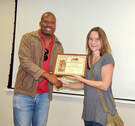
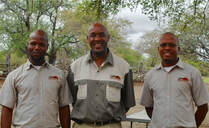

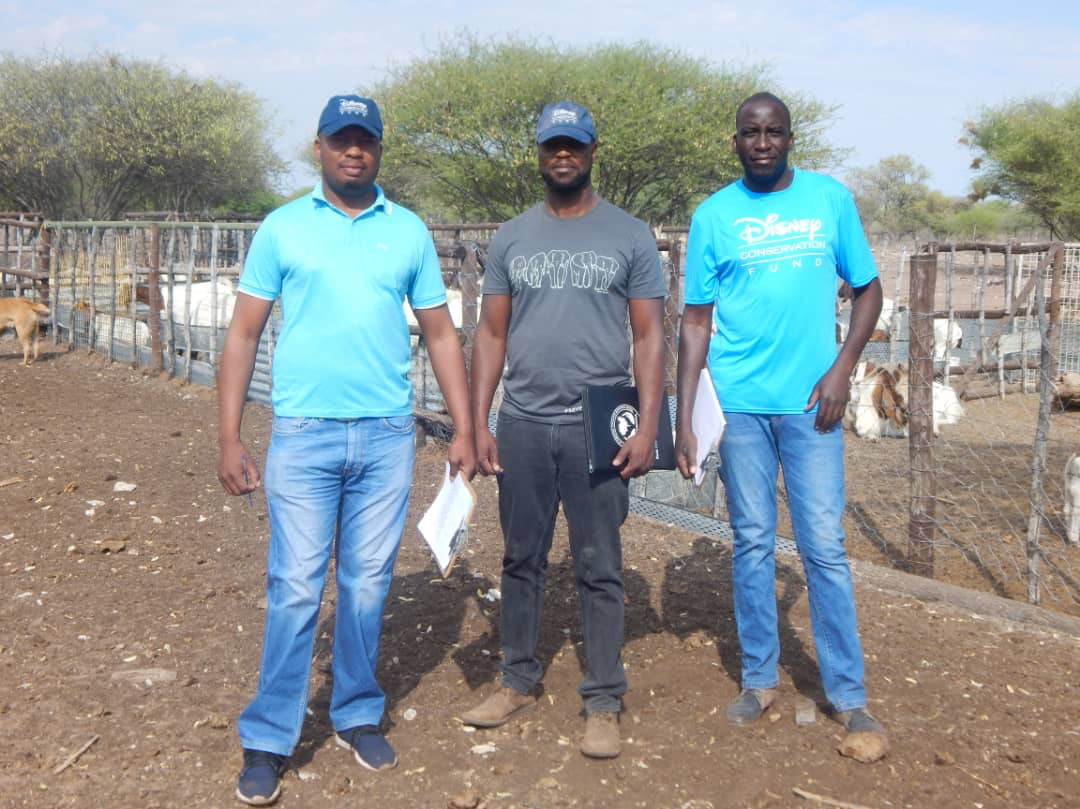
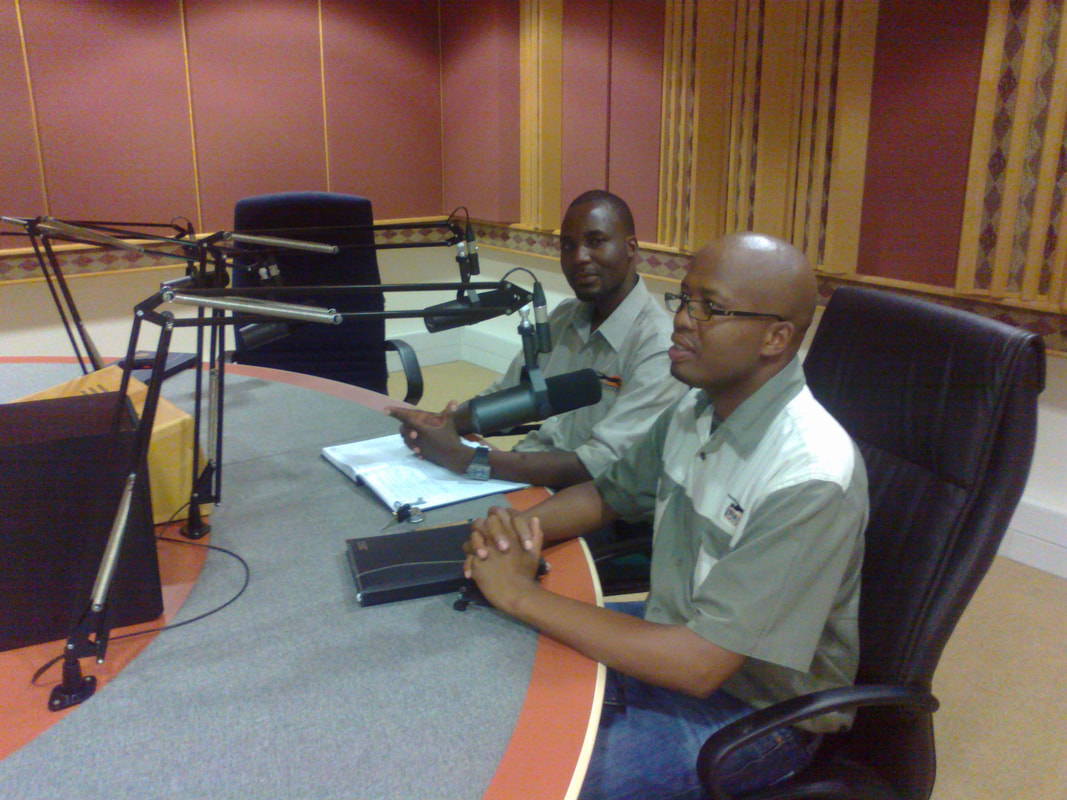
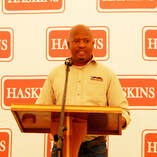
 RSS Feed
RSS Feed
